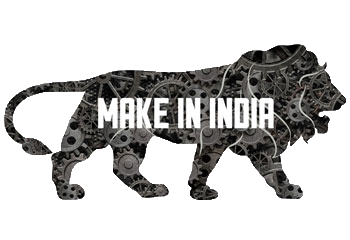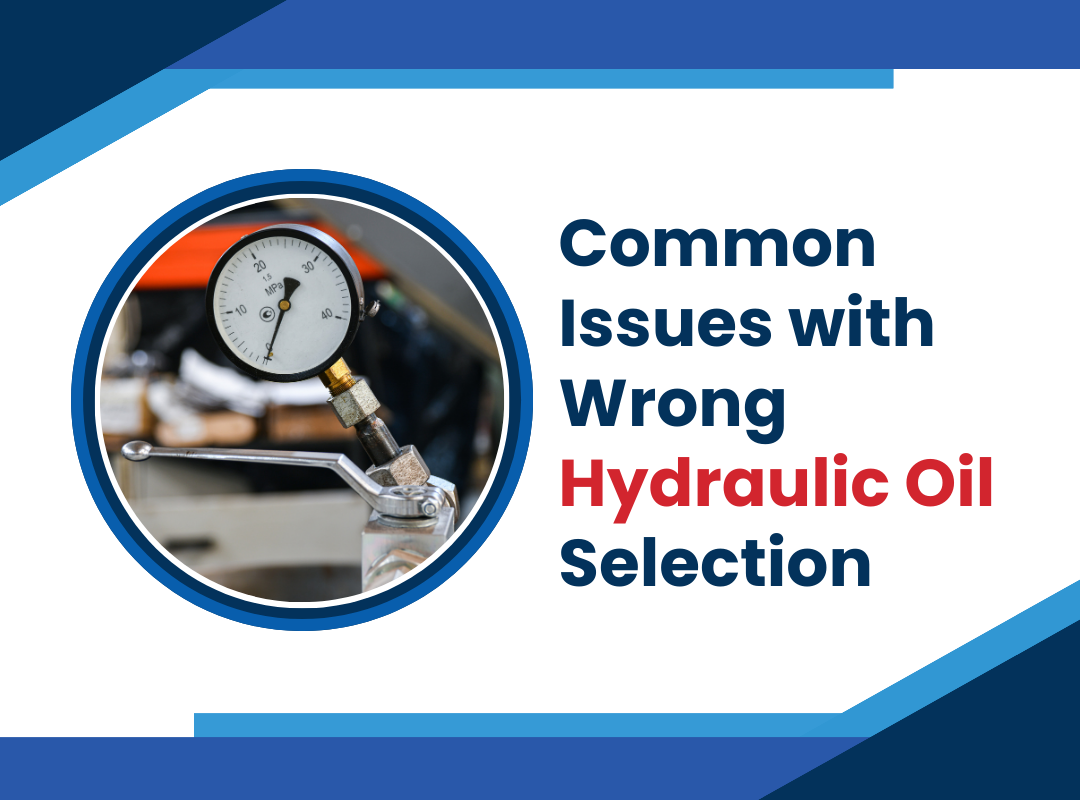Hydraulic oil is the fuel that makes your hydraulic system work. It acts as an energy transfer or power transfer medium, lubricant, sealant, and cooler that maintain a stable temperature and carries the contaminants away. However, it is not possible to use a single variety of oil for all Hydraulic Systems. So the most compatible hydraulic fluid must be selected after checking the oil’s physical and chemical properties.
Did you know that the wrong selection of hydraulic fluid can adversely affect your overall working of the hydraulic system and even end up damaging it?
You read it right. This blog educates you on the common issues you get with the wrong hydraulic oil selection. Thereby, you will be more cautious while choosing hydraulic oils.
But before discussing the issues, let’s learn more about the working of hydraulic oil and its function.
Working of Hydraulic Oil and its Function
The hydraulic fluid helps the hydraulic system run smoothly and safely with minimal effort. So while choosing the ideal fluid for your application, you must consider certain properties like viscosity, material compatibility, compressibility, demulsibility, fire & heat resistance.
Among these features, viscosity plays an important role in resisting the oil flow. So when considering the oil viscosity index for fluid selection, if the viscosity is higher, it might cause issues like hydromechanical inefficiencies and lower viscosity oil, resulting in volumetric inefficiencies through the leakage.
So it is recommended to opt for medium viscosity fluids as wrong viscosity selection will affect both machine performance and service life.
So there are different sectors in hydraulics, and so before selecting the fluid, you need to consider the system operation and working environment.
Common Issues With Wrong Hydraulic Oil Selection
Now coming to the main topic, what happens if the wrong hydraulic oil is added to the hydraulic system? Keep reading to learn the adverse effects.
Affects Lubrication
Hydraulic systems must be well lubricated to avoid the wear and tear of the components, and also lubrication improves the overall performance and service life of the system. Meanwhile, if the wrong oil is chosen, then it causes poor lubrication that will increase the friction between the components resulting in heat, wear, and other contamination.
Decreases System Eefficiency
As mentioned earlier, one of the adverse effects of wrong oil selection is decreased system efficiency. So if you don’t consider the fluid compatibility while choosing the hydraulic oil, you can’t get the system’s optimal performance.
Extreme Heat Generation
The next big issue of wrong oil selection is heat generation. If the wrong oil is chosen, some hydraulic oils start releasing high-level heat, which will, in turn, cause severe damage to other components, especially the seals.
Builds Up Varnish/Sludge
As a result of wrong oil selection, your system tends to use easily degradable hydraulic oil, resulting in building up varnish or sludge.
Environmental
Lastly, consider the surrounding environment while selecting oil. For instance, fluids with high freezing points can’t be a good choice for outdoor applications in polar climates.
Other oil properties to consider are high flashpoints to resist fire, anti-foam agents to control fluid aeration, anti-corrosive properties to prevent corrosion within the internal components, etc.
Things to Consider While Choosing the Best Hydraulic Oil
Multigrade Versus Monograde Oil
Depending on the operating temperature of a hydraulic machine, either choose multigrade or monograde oil. If a machine operates in topical conditions in summer and freezing temperature during winter, then opt for multigrade oil to maintain the oil viscosity within the optimum limits.
Meanwhile, if the machine works in a narrow operating temperature range, then opt for monograde oil. Between multigrade oil is expensive.
Detergent and Non-Detergent Oil
Detergent oils can emulsify water and disperse contaminants like varnish and sludge. At the same time, non-detergent oil can cause several problems. Like water in the oil accelerates, the age reduces lubricity and filterability and can also reduce seal life and leads to corrosion and cavitation.
Anti-Wear and No Anti-Wear Oil
Anti-wear additives maintain lubrication under certain boundary conditions. Also, this type of oil is used in high-pressure and high-performance hydraulic systems.
Wrapping up
Choosing the wrong hydraulic oil for your system is an expensive mistake. So try to avoid it by following the factors given here. Hopefully, this article sounds insightful.


